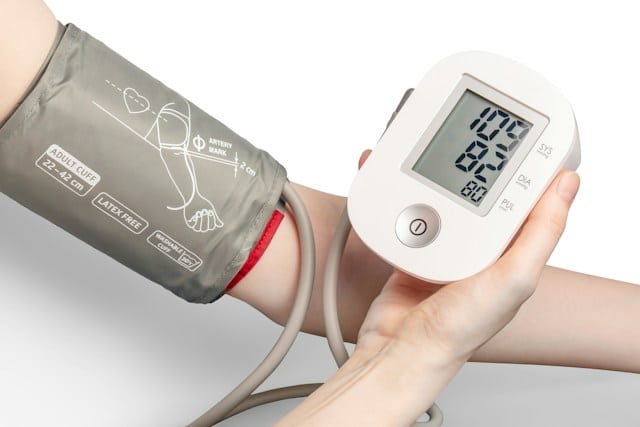As the dawn of the digital age continues to unfold, technology has begun to intertwine itself into everyday life in ways never before imagined. One of the most surprising and promising developments in this realm is the rise of wearable technology. From fitness tracking wristbands to smartwatches, these devices have become an increasingly common sight on the wrists of people around the world. But how will these devices impact the future of health and healthcare? Let’s delve into it further.
The Current State of Wearable Technology in Health Monitoring
Wearable technology has already made significant strides in health monitoring. These devices have the ability to track a wide variety of health data, providing users with real-time feedback about their physical well-being.
Lire également : How are nanotechnologies contributing to more effective medical treatments?
Take, for example, the common fitness tracker. These devices can monitor heart rate, steps taken, sleep patterns, and even stress levels. This data can be incredibly valuable for individuals looking to improve their fitness levels or manage chronic conditions.
Advancements in wearable technology don’t stop at fitness, though. Medical grade wearables, such as EKG monitors, are already used to monitor patients with heart conditions remotely. Also, wearable insulin pumps allow individuals with diabetes to manage their condition with greater ease and accuracy.
Lire également : How to boost your website with images created by MyImageGPT ?
The Role of Wearable Tech in Patient Care
The potential implications of wearable technology extend far beyond individual use and into patient care. With the ability to monitor vital signs in real-time, these devices could revolutionize the way medical professionals care for their patients.
For instance, doctors could use the data collected from wearable devices to track a patient’s condition in real-time, allowing for more accurate diagnoses and treatment plans. This could be particularly beneficial for patients with chronic conditions, who often require ongoing monitoring.
Furthermore, these devices could empower patients to take control of their own health. With the ability to track their own vital signs, patients could spot potential health issues earlier and seek medical help before the problem escalates. Such self-monitoring could also encourage healthier habits, leading to overall improved patient health.
The Future Development of Wearable Health Devices
While the current state of wearable health technology is certainly impressive, the future holds even more promise. With ongoing research and development, future wearables could offer even more advanced health monitoring capabilities.
For instance, scientists and engineers are working on devices that would be able to monitor blood pressure, blood sugar levels, and even detect the presence of certain diseases.
Additionally, there’s a growing interest in the development of non-intrusive wearable devices. These could include smart clothing or even smart tattoos, which could monitor health data without requiring the user to wear a noticeable device.
The Role of Data in Wearable Health Technology
One of the most important aspects of wearable health technology is the data it generates. This data is what makes these devices valuable to both users and healthcare providers.
By tracking health data over time, wearables can provide insights into patterns or trends. This information can help users make more informed decisions about their health and fitness. For healthcare providers, this data can provide a more comprehensive view of a patient’s health, improving the quality of care.
However, with great data comes great responsibility. As wearables become more common, issues around data privacy and security will become increasingly important. Future advancements in wearable technology will need to ensure that users’ health data is kept secure and private.
The Scholar’s View on the Future of Wearable Health Technology
Many scholars are optimistic about the future of wearable health technology. They see it as a tool that could revolutionize healthcare, making it more personalized, more proactive, and more effective.
However, they also caution against over-reliance on these devices. While wearables can provide valuable health data, they’re not a substitute for professional medical advice. Therefore, it’s essential for users to understand the limitations of these devices.
Scholars also stress the importance of inclusivity in the development of wearable technology. Future advancements should ensure that these devices are accessible and usable to all, regardless of age, mobility, or economic status.
In sum, the future of wearable technology in personal health monitoring is promising, with opportunities for advancements that could significantly improve health and healthcare. However, it’s important to approach this future with caution, ensuring that these devices are used responsibly and ethically.
The Application of Wearable Tech in the Healthcare Industry
The introduction of wearable technology has stirred significant changes in the healthcare industry. With the potential to revolutionize many aspects of patient care, wearable devices are gaining recognition as instrumental tools in the technological advancement of medical science.
Fitness trackers such as Fitbit, Garmin, and Whoop have soared in popularity, offering functionalities that allow users to keep tabs on their heart rate, sleep patterns, physical activity, and even stress levels. These features have proven beneficial for individuals aiming to meet specific fitness goals or those looking to monitor and manage chronic conditions, such as diabetes and hypertension.
On the other hand, medical-grade wearable devices such as EKG monitors, remote patient monitoring devices, and wearable insulin pumps have paved the way for more accurate and efficient patient management. These devices offer real-time health monitoring, thus enabling healthcare providers to offer timely medical intervention. Furthermore, they also allow individuals to have a better grasp of their condition, promoting self-management and adherence to therapy.
Additionally, the emergence of smart clothing and smart tattoos, which are less conspicuous than traditional wearable devices, is gaining momentum. These technologies have the potential to continuously monitor health parameters without causing discomfort or attracting undue attention.
The Role of Data Privacy and Security in Wearable Health Tech
As wearable health devices continue to gain traction, the amount of health data they collect is also increasing. This data, when analyzed, can provide insights into an individual’s health patterns, enabling healthcare providers to deliver more personalized and effective care.
However, with this wealth of data comes the challenge of ensuring its privacy and security. Instances of data breaches have raised concerns about the safety of health data, prompting calls for stricter regulations and heightened security measures. It is crucial for technology companies and healthcare providers to prioritize the security and privacy of health data, in order to maintain the trust and confidence of users.
In light of this, experts are advocating for the incorporation of stringent data privacy and security measures in the design and development of future wearable tech. These could include the use of advanced encryption technologies, secure data storage solutions, and tighter access controls.
Conclusion: Striking a Balance Between Innovation and Ethics
The potential of wearable technology in personal health monitoring is undeniably vast. From allowing real-time tracking of vital signs to enabling self-management of chronic conditions, wearable devices could significantly enhance health outcomes and the delivery of healthcare services.
However, as we continue to traverse this exciting digital health landscape, it is crucial to tread thoughtfully. While the benefits of wearable tech are substantial, it is equally crucial to address the ethical and privacy concerns they raise.
Remember, wearable devices should complement, not replace, professional medical advice. Users must understand the limitations of these devices and not rely on them as their sole source of health information.
Moreover, as wearable tech becomes more prevalent, ensuring equitable access should be a priority. The benefits of this promising technology should not be exclusive to those who can afford them but should be made accessible to all, regardless of socio-economic status.
In essence, the future of wearable technology in personal health monitoring is a promising one, laden with immense opportunities for enhancement. However, as we forge ahead, we must strike a balance between technological innovation and ethical responsibility, ensuring that the march of progress does not compromise the principles of privacy, accessibility, and inclusivity.











